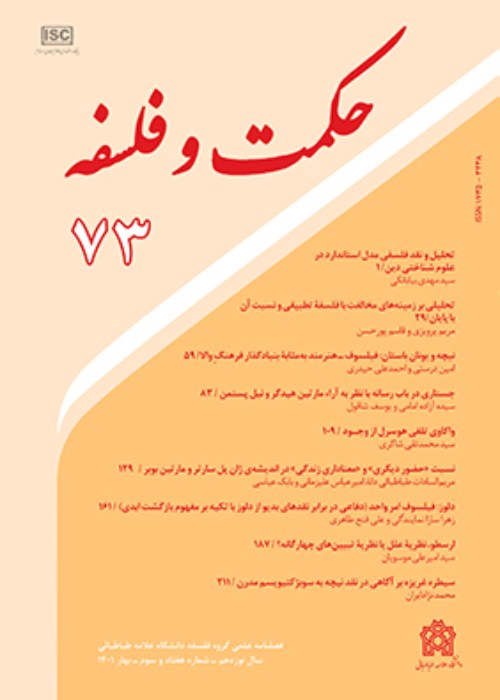Three Expressions of "Duration" in Bergson's Philosophy; what is the "Difference" of Deleuze's Formulation from Bergson's Philosophy?
Bergson's philosophy has sometimes been regarded as dualistic and sometimes as monotheistic. The price of being partial to each has been to destroy some of Bergson's concepts and specifications in favor of others. In the meantime, some have tried to read Bergson's philosophy as dualistic and monistic at the same time, but the efforts have not only been unsatisfactory, but have also added to the previous difficulties; Because sometimes he has changed Bergson's philosophy to a philosophy of existential unity, sometimes he has made it based on a dialectical foundation, and sometimes he has turned it into a kind of conventional dualism. Gilles Deleuze, by proposing the doctrine of "difference", has given a reading of Bergson's philosophy, based on which Bergson's philosophy has different moments of dualism and monotheism, in each of which Diernard accepts a different "expression": From absolute dualism to hidden monogamy and then to recovered dualism. The purpose of this article is to highlight the fundamental difference between Deleuze's reading and other readings of existential unity or dualistic or dialectical of Bergson's philosophy, and to show that the explanation of these moments and especially the explanation of the logic of the last transition to recovered dualism requires recalling a doctrine that although Deleuze himself He cultivated it, he did not emphasize it much in his reading of Bergson. In this way, the claim is that explaining the logic of separating the moments of Bergson's philosophy in Deleuze's reading, as well as the logic of the transition from one to the other, instead of considering the two statements of Dirndt, it is necessary to consider the third statement of Dirndt as a difference in itself. This is the way that the expression of each aspect of Dirand is possible in three types of difference: Dirand as a pure thing in the essential difference, Dirand as a comprehensive thing in the difference of the material, and Dirand as a creative thing in the difference in itself.
Bergson , dualism , Monism , Expressionism , Deleuze
- حق عضویت دریافتی صرف حمایت از نشریات عضو و نگهداری، تکمیل و توسعه مگیران میشود.
- پرداخت حق اشتراک و دانلود مقالات اجازه بازنشر آن در سایر رسانههای چاپی و دیجیتال را به کاربر نمیدهد.


